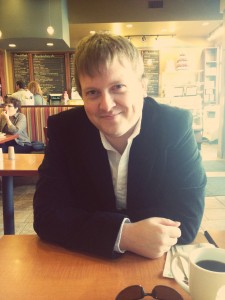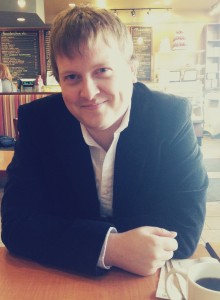For those of you who have never visited the excellent sociological blog Family Inequality, I suggest that you stop reading right now, and head on over there for an hour or two. Don’t worry about me, I’ll wait.
Welcome back! I hope you enjoyed your stay there, I know that I spend quite a bit of time there (often time I don’t have) digging through the blog’s many, many entries. A while back, the blog’s author, Phillip Cohen, wrote a piece called “Should every sociologist blog?” that I shamelessly linked to my own blog. The thesis of the article was simple, is it in the interests of both sociologists and the public to encourage sociologists to blog about their research? Since I’m already doing that (in my own, rather less articulate way), I of course answered in the affirmative. For Cohen’s part there seems to be a bit more reservation about the whole idea, but I’ll leave it to him to make his own points. He’s better at it than I am.
Cohen’s question got me to thinking though: should blogging at the academic level – in all disciplines – be encouraged as a side-project for scholars? As it stands, blogging means precisely nothing on any academic’s CV, and there is therefore no real incentive for any academic to engage in it, outside of maybe their own passion for writing. But aside from filling a line on a CV, could academic blogging serve a purpose?
Hell yes, and here’s why.
Traditionally, academia has had the (fairly exaggerated) reputation as being the guardian of knowledge; a society’s culture, traditions, and memory are gathered, catalogued, and maintained by armies of scholars and researchers; scientists of all stripes, historians, anthropologists, literary theorists, etc. Of course the reputation is bullshit and much of a civilization’s knowledge is contained in the minds of non-academics everywhere; but while academics might not be the sole holders of knowledge, we do certainly hold a lot of it. It’s our job, and many of us are quite good at it.
Part of the disconnect between academia and the broader population rests in the severing of academic knowledge from other, more ‘everyday’ forms of knowing. How often do we hear the expression “oh sure they’re book-smart, but they’re not really street-smart”, or hear academia being described as an ‘ivory tower’, far removed from the affairs of the proles, toiling away far below? But the distinction between these two forms of knowing is largely artificial and it’s largely maintained by the often arcane semiotics of the various dialects of different academic disciplines. We love to make up new words and hurl them at each other, and each time we do – and each time we fail to explain to everyone else what those words mean – we further distance ourselves from our fellow citizens. Some academics, like the infamous Jacques Derrida, almost seemed to revel in their obtuseness, as though being cryptic was synonymous with being profound. And while the navel-gazing and word-play continued, many of our neighbours and friends began to lose interest in what we were talking about in the first place. Our debates take place in closed conferences and behind the paywalls of peer-reviewed journals, and our discoveries and carefully crafted ideas only ever interface with the public as short sound-bites – and only after they’ve been distorted and abridged by others. In short, academics are often dreadfully isolated from society, and it’s our own fault.
Blogging allows us to begin to change that. Blogs are a handy medium for allowing researchers and scholars to speak to the public in their own way, with their own idiosyncrasies, without having to go through someone else. Blogs allow the public to ask us questions or to challenge us directly, and they can be hopeful that we will respond (well, at least some of us). In other words, blogging can help to facilitate the return of academics into the mainstream of public discourse. Granted people like Neil deGrasse Tyson are already doing this, but he and people like him represent only the tiniest fraction of academics who ever take their research and love of educating public. Other venues, like TED talks can also help to make current research available to others, but they’re not the only way.
I’m not photogenic enough for television, and I don’t know that anyone would want to listen to me talk at them for any length of time, but I’m handy with a keyboard, and I can usually convey the substance of my own research to a broad audience fairly easily. As an academic, I feel that I have a moral obligation to take the knowledge and training I’ve received at public institutions and share it with my fellow citizens. Blogging helps me to do that.
So will blogging or some other form of (usually) non-paying, non-peer reviewed public academics be embraced by researchers any time soon? Well, probably not; as universities become increasingly corporatized and professor’s salaries and advancement are increasingly tied to their ability to churn out papers and books, the demands on individual academics’ time grow as well. Many universities now demand that the lion’s share of a professor’s day be dedicated to research and publication; a minority of time is devoted to the actual practice of educating. At the graduate level, fewer universities are even offering their students courses on how to be a good teacher. Instead, graduate students – MA and PhD alike – are indoctrinated into the world of ‘Publish or Perish‘, and if they happen to pick up some skill at teaching while they’re at it, well that’s just a happy bonus. Many current professors learned to teach only by emulating a past favourite professor and few will ever take a formal class about teaching pedagogy. At some universities, a professor’s teaching ability isn’t even a factor when determining tenure, promotion, or salary adjustment. Think about that for a second: your professors – if you’ve attended university – may likely have received zero attention or accolades for their teaching ability, because to the university, teaching ability is not important. It is a grim picture, if you are of the opinion that university professors ought to be responsible for educating their fellow citizens.
And so I’ll continue to blog. These days it seems that it’s the only way I can meet what I see as my obligation to educate.







